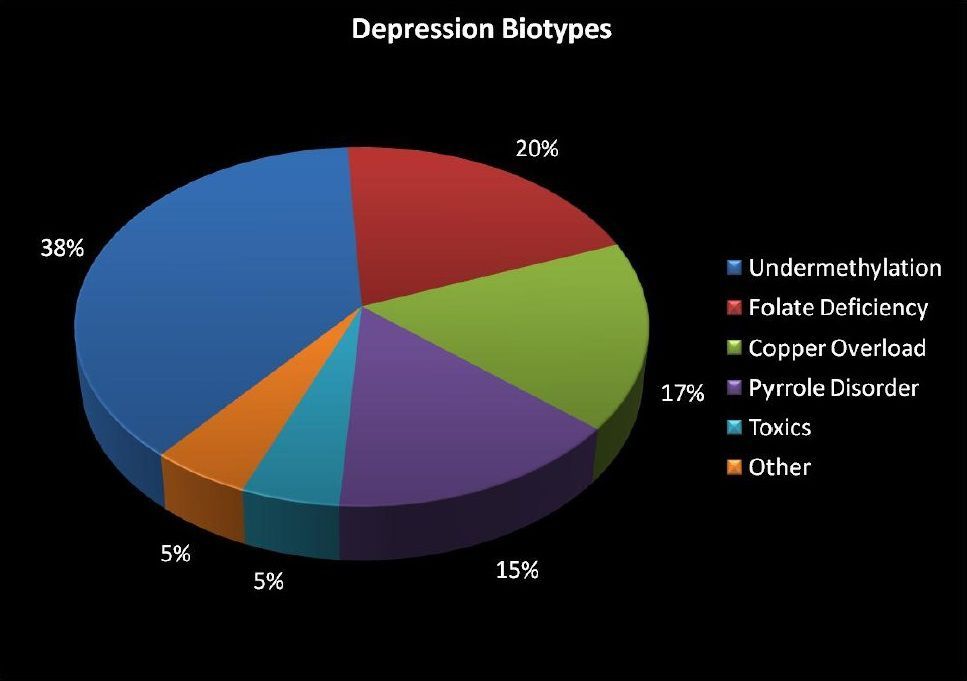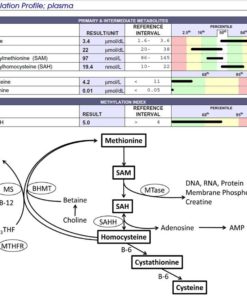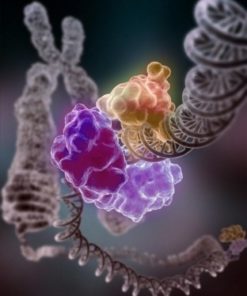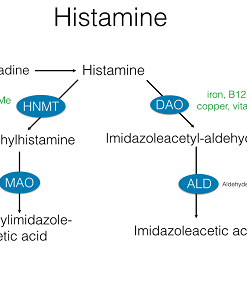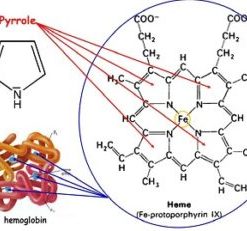What is my Walsh Depression Biotype?
The Five Biotypes of Depression
Regardless of the cause, any imbalance may contribute significantly to mental health and cognitive disorders since the elements in this Panel have a significant impace on neurotransmitter production and activity.
Many patients with obsessive-compulsive tendencies, oppositional-defiant disorder, or seasonal depression are undermethylated which is associated with low serotonin neurotransmission. They generally exhibit seasonal allergies, perfectionism, competitiveness, and other distinctive symptoms and traits. A high percentage have an inborn tendency to be depressed in calcium, magnesium, methionine, and Vitamin B-6. These undermethylated persons may benefit nicely from Paxil, Zoloft, and other serotonin-enhancing medications, although nasty side effects are common. A more natural approach is to directly correct the underlying problem using SAMe, methionine, calcium, magnesium, amongst others. Although most undermethylated patients thrive on folates, supplements of folates must be avoided for patients whose problems are dominated by low activity at serotonin receptors. Folic acid, folinic acid, and methylfolate all reduce serotonin/dopamine neurotransmission by an epigenetic mechanism, and this effect overwhelms the folate benefits of improved methylation and serotonin synthesis.
Lab Panels: Undermethylation Lab Panel, Doctors Data Methylation Panel
Individual Lab Tests: Whole Blood Histamine, Homocysteine
Walsh Approach Test Panels
Many persons who suffer from anxiety and depression are over-methylated which results in excessive activity at dopamine, norepinephrine and serotonin receptors. Typical symptoms include chemical and food sensitivities, sleep disorders, underachievement, upper body pain, and an adverse reaction to serotonin-enhancing substances such as Prozac, Paxil, Zoloft, St. John's Wort, methionine, and SAMe. They have a genetic tendency to be very depressed in folates and other B vitamins. Biochemical treatment focuses on folates, Vitamins B-3 and B-12 that reduce activity of dopamine and norepinephrine. These persons should strictly avoid supplements containing copper, methionine, and other nutrients that could worsen anxiety and depression..
Lab Panels: Overmethylation Lab Panel
Individual Lab Tests: Whole Blood Histamine, Homocysteine
Walsh Approach Test Panels
Methylation Test Panel – Whole Blood Histamine & Homocysteine
A common problem in ADHD, behavior disorders, and hormonal depression is a genetic inability to control copper, zinc, manganese, and other trace-metal levels due to improper functioning of metallothionein proteins. Elevated copper can cause striking changes in the levels of dopamine and norepinephrine in the brain and are also associated with hormonal imbalances and intolerance to estrogen. They must avoid supplements and "enriched" foods containing copper. In addition, we recommend they drink bottled water and limit use of swimming pools and jacuzzis treated with copper sulfate anti-algae agents. Foods to be limited due to high copper content include shellfish, chocolate, and carob. Biochemical treatment focuses on zinc, B-6, and other nutrients that stimulate metallothionein synthesis and functioning.
Lab Panels: Copper Biotype Panel
Individual Lab Tests: Copper, Ceruloplasmin, Plasma Zinc
Walsh Approach Test Panels
A common feature of many behavior and emotional disorders is pyroluria, an inborn error of pyrrole chemistry which results in a dramatic deficiency of zinc and Vitamin B-6. Common symptoms include explosive temper, emotional mood swings, poor short-term memory, and frequent infections. These patients are easily identified by their inability to tan, poor dream recall, abnormal fat distribution, and sensitivity to light and sound. The decisive laboratory test is analysis for pyrrole levels in urine. Treatment centers on normalizing blood levels of B-6 and zinc.
Pyroluria Panel:
Individual Lab Test: Urinary Kryptopyrroles
Walsh Approach Single Tests
Less common but significant factors in depression as described by Dr Walsh.
Glucose Dyscontrol
Our database indicates a significant number of our patients have chronic low blood glucose levels. This problem generally isn’t the cause of behavior disorders, depression, etc., but instead is an aggravating factor which can trigger striking symptoms. Typical symptoms include drowsiness after meals, irritability, craving for sweets, trembling, anxiety, and intermittent poor concentration and focus. Treatment includes chromium, CoQ-10, and other glucose-stabilizing nutrients, but the primary focus of treatment is on diet. These patients benefit from six or more small meals daily with emphasis on complex carbohydrates and protein. In essence, they cannot tolerate large meals or quick sugars. Complex carbohydrates provide the necessary glucose in a slow, gradual manner and may be thought of as "time-release" sugar.
Occasionally we encounter a patient whose condition has resulted from a heavy-metal overload (lead, cadmium, mercury, etc.) or toxic levels of pesticides or other organic chemicals. Our database indicates that persons with a metallothionein disorder are especially sensitive to toxic metals, and that overmethylation is often associated with severe chemical sensitivities. Effective treatment requires a three-part approach: (1) avoidance of additional exposures, (2) biochemical treatment to hasten the exit of the toxic from the body, and (3) correction of underlying chemical imbalances to minimize future vulnerability to the toxic.
Although only 10% of our database case histories involve serious malabsorption, more than 90% of autistics exhibit this problem. There are three primary classes of absorption problems: (1) stomach problems, including excessive or insufficient HCl levels, (2) incomplete digestion in the small intestine, and (3) problems at the brush-border of the intestine where most nutrients are absorbed into the portal blood stream. The consequences can include nutrient deficiencies, inflammation of the intestinal tract, candida, and mental health problems. Incomplete breakdown of protein and fats can adversely affect brain neurotransmission, and has been associated with impulsivity and academic underachievement. Treatment depends on the type of malabsorption present and may involve probiotics, adjustment of stomach HCl levels, digestive enzymes, and special diets.
The brain is 20% fat (by dry weight) and these fatty substances fulfill very important functions. Glial cells enable brain plasticity, regulate neurotransmission, nourish brain neurons, and form the myelin sheaths, which surround our brain cells. There is strong evidence of the important roles for omega-3 oils (especially EPA and DHA) and omega-6 oils (especially AA and DGLA) in ADHD, depression, and schizophrenia. A famous Harvard study showed EPA and DHA supplements to be more effective than psychiatric medications in combating bipolar depression. Typical American diets usually result in insufficient omega-3 and excessive omega-6, and some nutritionists routinely recommend supplements of omega-3 oils. However, biochemical individuality also exists with oils and certain persons are innately low in omega-6 oils. A review of symptoms and specialized lab tests can identify individual needs.

